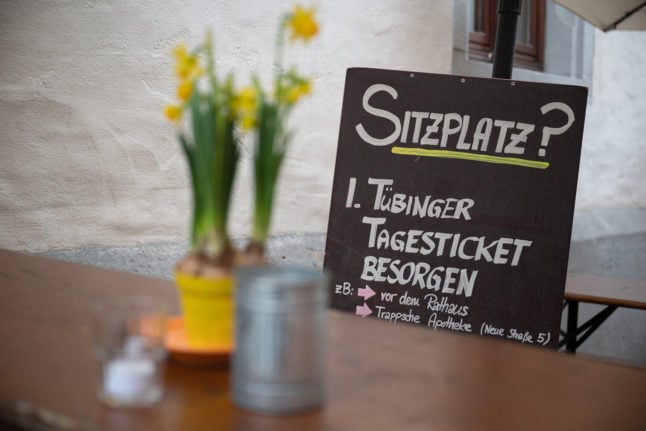The people of Tübingen, a university town of 90,000 people in Baden-Württemberg, can secure themselves entry to various businesses and cultural centres by undergoing a rapid antigen test. A negative result allows them to return to a relatively normal type of life for one day.
The three-week project will last until April 4th and will be accompanied by scientists from the town’s famous university, who will study what effect the project has on infection levels.
The town has stated that if infections rise too quickly, the project will be cut short.
Town mayor Boris Palmer of the Green party said the project was “a further stage of the ‘Tübingen model’, which focuses on bringing the pandemic under control through preventative testing.”
READ MORE: Will Germany continue to reopen public life amid rising Covid-19 numbers?
Unlike the rest of Germany, Tübingen has for months attempted to avoid lockdowns by investing in testing capacities.
People there have been able to receive free antigen tests since September, a system has only become available nationwide in the past couple of weeks.
Since the autumn intensive testing has also taken place at the entrance to care homes in order to prevent the virus from entering buildings inhabited by high risk groups.
“Now it depends on whether we can show that more openings and more safety go together,” said Palmer of the town’s latest enterprise.
Restaurants and cafes have been permitted to open their terraces, shops can allow in a limited number of people, while museums, cinemas and theatres have all opened up again.
Once a test comes through as negative, people receive a certificate via an app on their smartphones that allows them to check in at the entrance to businesses or culture centres. Alternatively residents can receive a stamped paper certificate.
In order to cope with demand, the town has set up free test centres in the town centre, where trained staff swab people’s throats for antigen testing.
Some 250,000 tests will be made available each week to ensure that there is no shortage of supply.
“These are exactly the innovative ideas that we urgently need in the pandemic. We hope that the project will help us find a way to give people a little more normality,” state premier of Baden-Württemberg, Wilfried Kretschmann, said.
“Hopefully, we will open up new possibilities for the sectors that are particularly affected by the lockdown – all without having to compromise on safety.”
The project has also piqued the interest of the national press, with analysts hoping that it can provide a model for the whole country.
“What a relatively small city like Tübingen managed to do in eight days, a small country like Austria already managed to do a quarter of a year ago: set up a functioning infrastructure with fixed test stations in urban areas,” commented the Süddeutsche Zeitung, adding that Germany now needed “a national effort” to put proper testing infrastructure in place.
SEE ALSO: Berlin becomes first German state to pause lockdown relaxation



 Please whitelist us to continue reading.
Please whitelist us to continue reading.
THIS is the way forward